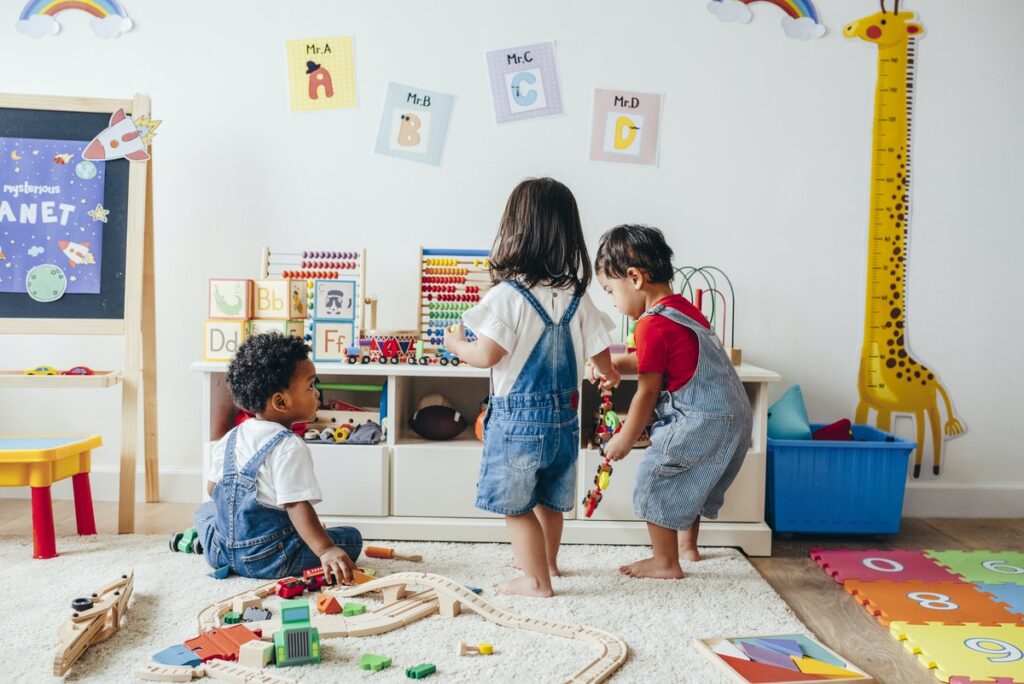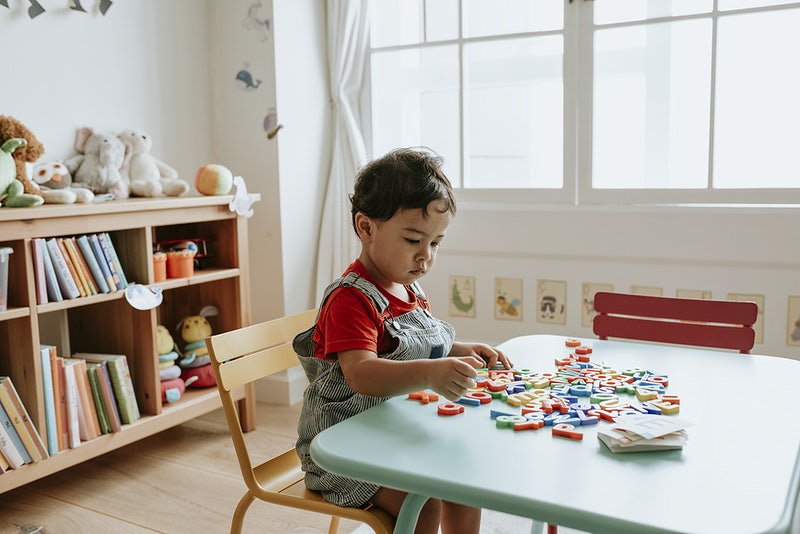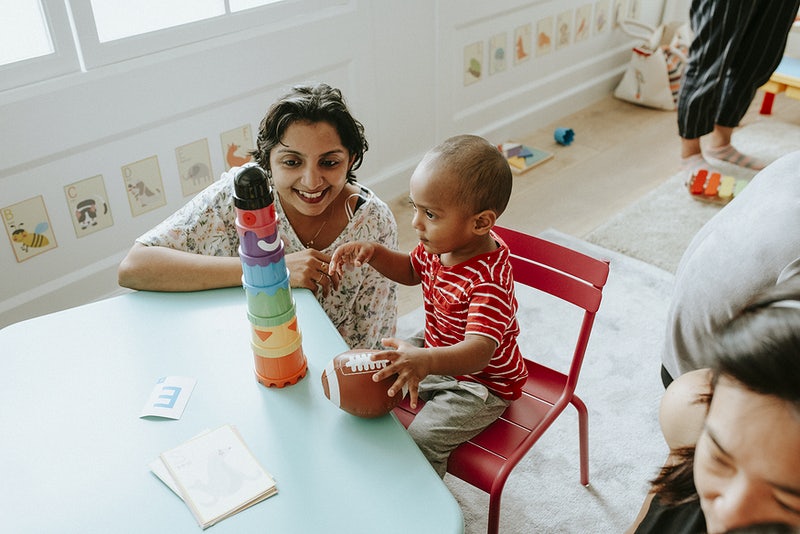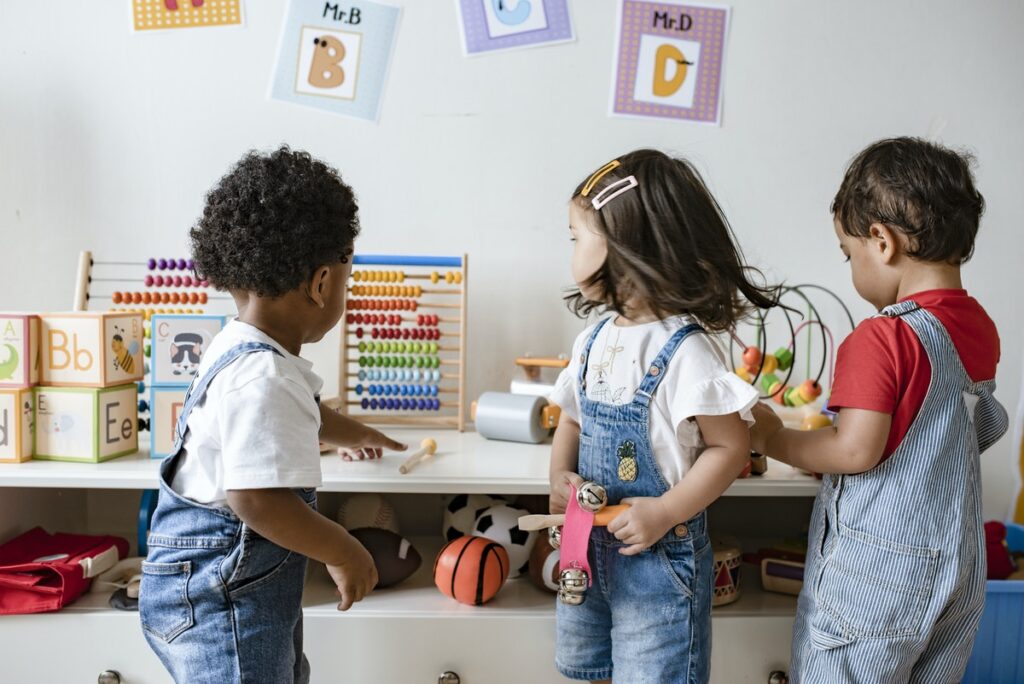
Making decisions that can impact your child’s development and wellbeing can be stressful, to say the least. There’s so much contradictory advice out there, and making informed, practical decisions on such precious topics can be tough.
The COVID-19 crisis has only made such choices about your child’s education all the more complicated. While primary and secondary schools are set to reopen in the coming weeks, nurseries have remained operational for the majority of the crisis, highlighting the importance of early education for children’s development and even enabling a preliminary acquisition of soft skills during what has otherwise been a challenging time.
Yep, it’s hard to overstate the importance of nursery school, but state we shall; here are 5 benefits of preschool and early education for children.
PREPARING FOR ACADEMIA THROUGH PLAY
Play is how children introduce themselves to the world, and atmospheres which facilitate, encourage and diversify a child’s access to play can be hugely beneficial to their learning and development.
According to the good guys at UK children’s charity Family Lives, ‘’Young children can develop many skills through the power of play. They may develop their language skills, emotions, creativity and social skills. Play helps to nurture imagination and give a child a sense of adventure. Through this, they can learn essential skills such as problem solving, working with others, sharing and much more’’.
The emphasis here is on power we think; play is one hell of force for preschool children finding their feet in the world, and contributes to soft skills – like teamwork, interpersonal relationships, communication, and curiosity – and neurological development which could serve them so well in later life.
An early childhood education centre that focuses on child-initiated, child-led play can have a tremendously positive effect on your kid. Should you be considering local preschool and nursery programmes, take note of centres that emphasise the value of play. ELCACenters.com double down on that power of play we mentioned, suggesting that it’s essential to ‘’encourage children to be active thinkers, and to learn through experimentation and expression. Using real materials through play helps children develop intellectual skills and creative abilities that will last a lifetime’’. We couldn’t agree more.

GRADUAL RATHER THAN ACCELERATED LEARNING BENEFITS CHILDREN MOST
Ever wonder why children learn so much more quickly than adults? It’s not because their learning is regimented, strict and rushed. Quite the opposite in fact; during the early phase of neuronal development, particularly pertinent for toddlers, the brain exhibits more plasticity.
Because children haven’t learnt regimes and rituals to the point of being ingrained, their minds are far more malleable and responsive to new information. Us adults, sticklers for routine that we are, have trouble building new pathways in the brain because of this. Children, much to their benefit, don’t have the same problem.
Starting a child in early education, where the focus falls on freedom to play, explore and be curious, benefits their learning hugely. On the flip side, studies have found that encouraging academic pursuits like reading and maths at too young of an age can have detrimental results on a child’s development. Children in Finnish schools, for instance, don’t learn to read until they’re seven years old—and Finland has the highest adult literacy rate in the world. Food for thought, indeed.
As such, when on the search for the ideal nursery for your child, ask potential education centre about the amount of material that they teach (or better, don’t teach) in their curriculum. Accelerated learning and testing have been shown to be counterproductive—it actually slows down a child’s learning.

SETTING DISTINCTION ENCOURAGES PROBLEM SOLVING & ORGANISATIONAL DEVELOPMENT
Attending a preschool can help with your child’s neurological development, that much we’ve established. But having a routine each day distinct from the familiar four walls of home, with predictable outcomes and the odd surprise, is brilliant for toddlers to develop skills which might traditionally escape them, particularly problem solving and organisation.
There are several key developmental skills which young preschoolers will be learning and honing:
- Counting objects as well as developing the ability to describe and sort them via their characteristics (shapes, sizes, colours)
- Problem solving, via planning, discussion, suggestion and building
- An interest develops in knowledge accumulation regarding biology, both of their own bodies and the natural world around them
- An understanding of the structure of how the day develops, and recognising the similarities and differences between, for instance, school days and weekends
- Taking apart and putting items back together
Attending pre-school helps finesse these skills in a new environment, which reinforces organisation and problem solving in the child’s mind, before this development can be applied in the domestic setting, too.

LEARN THE VALUE OF FRIENDSHIP
Making friends and playing with them is a wonderful experience at any age, let’s be honest. But it is particularly beloved of young children, who learn so much from forming bonds and communicating with their young peers.
Studies have found that, from the perspective of the child, the social element of early childhood education is the most appealing, and encourages commitment in the more mundane areas, too. If your child is without siblings or neighbours, in particular, this might mean they could benefit extra from the social experience of an education program.
Just some of the benefits of these early instances of building friendships include:
- Developing a capacity for empathy
- Learning sharing, cooperation and negotiation
- Practicing communication skills
- Stress relief
In many truly magical instances, friends for life can be made at preschool. Just how lovely is that?

INTRODUCTION TO HOBBIES
Finally, an early childhood education program has the potential to introduce your child to new things that they will grow to love. Some programs have gardens that kids can nurture plants in. Some have different sports equipment or musical instruments. Some boast pet rabbits, guinea pigs or gerbils. In fact, preschool education presents a diverse range of stimulating, educational activities, many of which are integral, not only to a child’s development, but also their sense of worth and wellness.
Part of being so young is exploring the world and finding the things that stimulate them. It’s possible that an early childhood education program could form hobbies and interests which last for a lifetime, and there’s something rather special about that, don’t you think?
THE BOTTOM LINE
A child’s development is a precious, beautiful thing, and every single child walks their own unique path when forming a personality, perspectives and relationships with their peers. Preschool and early education play a vital role in this process, and we hope your child finds their first formative years a joy!





